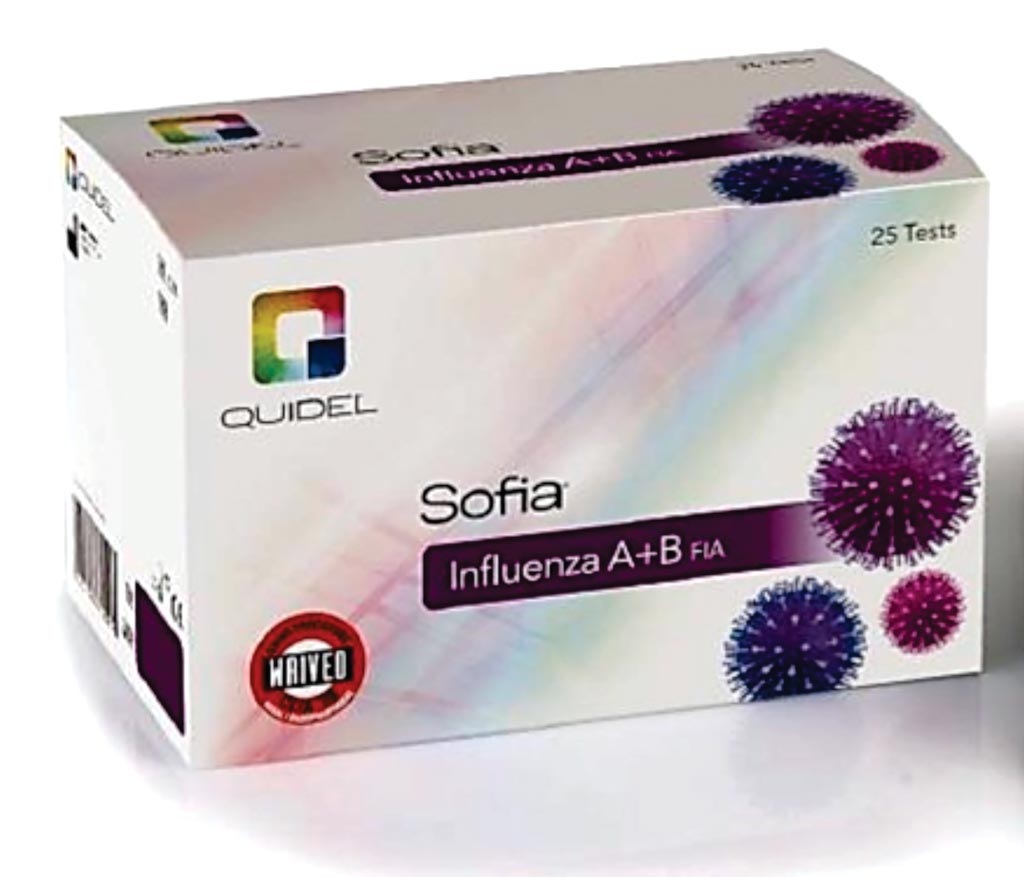Two-Stage Algorithm Evaluated for Respiratory Viral Infections
By LabMedica International staff writers
Posted on 19 Apr 2018
New on-demand multiplex molecular respiratory viral diagnostics offer superior performance although can be expensive and some platforms cannot process multiple specimens simultaneously.Posted on 19 Apr 2018
The recent development of commercial panel-based molecular diagnostics for the rapid detection of pathogens in positive blood culture bottles, respiratory specimens, stool, and cerebrospinal fluid has resulted in a paradigm shift in clinical microbiology and clinical practice.

Image: The Sofia Influenza A+B FIA Test Kit (Photo courtesy of Quidel).
Scientists from Tufts Medical Center (Boston, MA, USA) performed a retrospective study reviewing results of patients tested for respiratory viruses following introduction of a two-stage testing algorithm incorporating an initial screen with Sofia immunoassay and then secondary Biofire FilmArray, and compared to a period when only FilmArray was used. Specifically, 1,814 samples were processed with the two-stage method during the winter influenza season. The protocol was then compared to 1,162 samples processed by FilmArray alone in the summer months.
The team was able to diagnose 282 cases of influenza with the Quidel Sofia influenza immunoassay using the two-stage approach. It then tested all nasopharyngeal specimens that were shown to be negative for influenza by immunoassay with the FilmArray panel, picking up an additional 163 influenza cases that would otherwise have been missed by immunoassay alone. The two-stage approach also included a respiratory syncytial virus (RSV) immunoassay test in children under age five and in adults upon physician request, testing 363 patients. Approximately 28% of samples were Sofia RSV negative, but FilmArray RSV positive, and an additional 71 RSV cases were discovered by FilmArray in patients who did not have the immunoassay. Significantly more patients received their diagnosis within 90 minutes in winter despite testing more samples, and approximately USD 36,000 was saved.
Brad J. Gardiner, an infectious diseases clinician and co-author of the study, said, “If you make a diagnosis that changes the patient's outcome, that's money well spent, but if you are diagnosing people with rhinovirus and it makes no difference, perhaps that money could have been spent better elsewhere.” The study was published on March 12, 2018, in the journal Diagnostic Microbiology and Infectious Disease.
Related Links:
Tufts Medical Center













